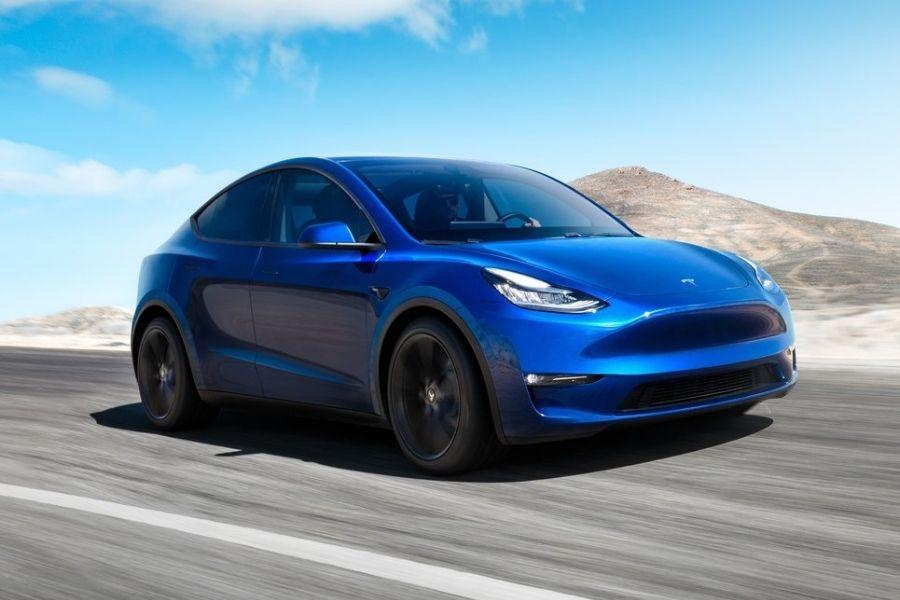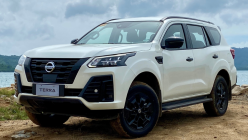Electrified mobility is the wave that practically all of the world’s carmakers are riding. While this opens up opportunities for innovation across all price points, there may be caveats as to the long-term reliability of electric vehicles (EVs).

Electric SUVs such as the Tesla Model Y fail in terms of reliability, according to Consumer Reports
According to reliability rankings by Consumer Reports, EVs leave much to be desired in the reliability scale. This holds true particularly for electric sport utility vehicles (SUVs), which received an overall rating of ‘below average.’ Analysts say the problem lies with extra tech features that automakers pack into these vehicles, especially on luxury models.
Owners of electric SUVs often report problems with in-car electronics and power features on their vehicles. Interestingly, those are shaping up to be more troublesome than the powertrain components of the EVs themselves.
It might have something to do with an EV’s power source, but automakers seem to pack more infotainment features on battery-powered vehicles than they do on regular combustion-powered models. This tends to add complexity to the onboard systems on electric SUVs, making them more vulnerable to problems.

Smaller EVs with less complex tech tend to have fewer problems
Consumer Reports organized the rankings by brand, with luxury EV brand Tesla nearing the bottom of the barrel next to Lincoln. The group assessed the Tesla Model Y as having ‘much worse than average’ reliability in 2020, although Model 3 units made in China tended to have higher scores.
But critics should think twice before pouncing on this news as an excuse to discourage others from buying EVs in general. Consumer Reports adds that based on its rankings, EVs with less complex features such as the Nissan LEAF actually did better than their bigger counterparts.
At the other end of the spectrum, compact hybrids and plug-in hybrids reached the top of the rankings with above-average overall reliability. According to Consumer Reports’ findings, both are less expensive to maintain and repair than gasoline vehicles. The costs drop even lower compared to EVs once they’ve reached 160,900 kilometers.

According to customers surveyed, hybrids top the list with above-average reliability
In the Philippine market, EVs have yet to gain widespread acceptance, mainly due to prohibitive pricing and range anxiety due to a lack of the necessary charging infrastructure. Only Toyota so far offers hybrid models in its lineup such as the Prius, Corolla Cross, and Altis compact sedan. Meanwhile, Geely markets its 48-volt mild-hybrid powertrains on the Azkarra compact and Okavango midsize crossovers. Among the major automakers, only Nissan Philippines offers an EV in the form of the LEAF.
We demonstrate our reliability where industry news is concerned at Philkotse.com.
Know more about Nissan LEAF 2024

The Nissan LEAF 2023 Philippines is a 5-door hatchback fitted with an all-electric powertrain. It is offered in the Philippines with one variant only which is priced at Php 1,998,000. Powering this electric vehicle (EV) is a synchronous electric motor capable of generating 148 horsepower and 320 Nm of torque. A 40-kWh lithium-ion battery is used, which aids the model's 311 km range. Only a single-speed gear reduction system is utilized to exclusively send power to the front wheels.
Dimensions-wise, the LEAF has a length of 4,490 mm, a width of 1,788 mm, and a height of 1,540, with ground clearance and wheelbase rated at 155 mm and 2,700 mm, respectively. This is the first and only commercially-available EV in the country. But in the all-electric options, the alternatives of Filipino car buyers include the Porsche Taycan, Hyundai Ioniq EV, and BYD E6.
₱ 1,998,000
ExploreRecent posts
- lexus mazda toyota lead reliability Nov 19, 2021
- best car brands united states Feb 23, 2021
- Consumer Reports to rise Tesla’s ratings over Auto Braking Oct 13, 2020
















